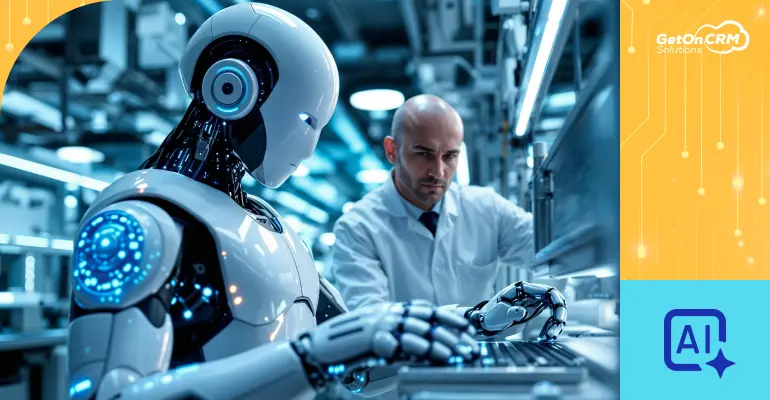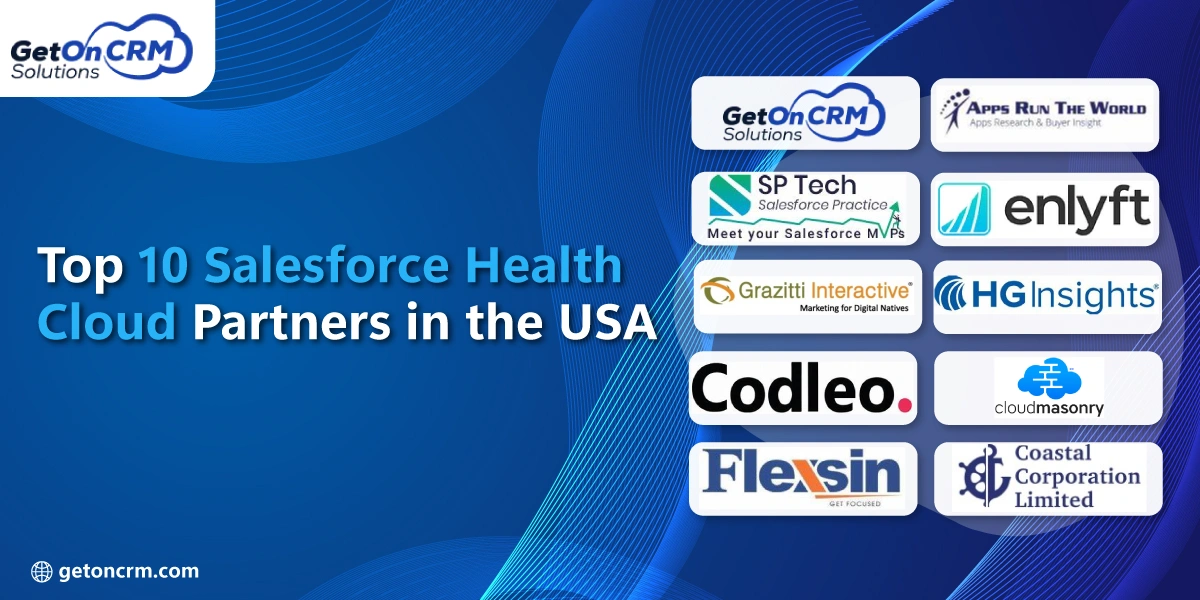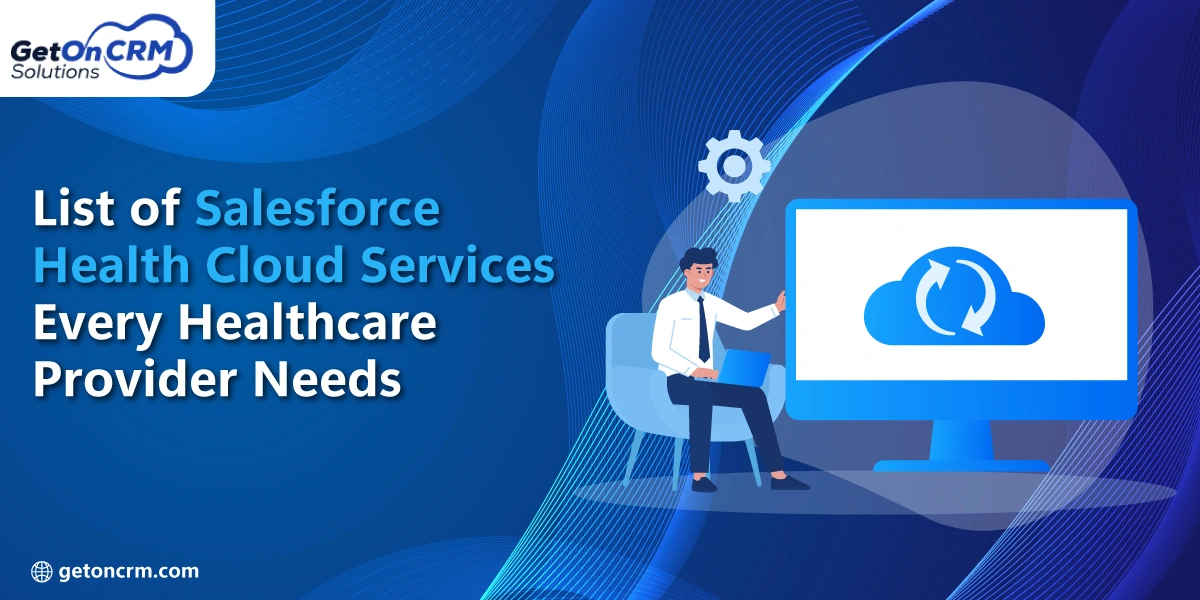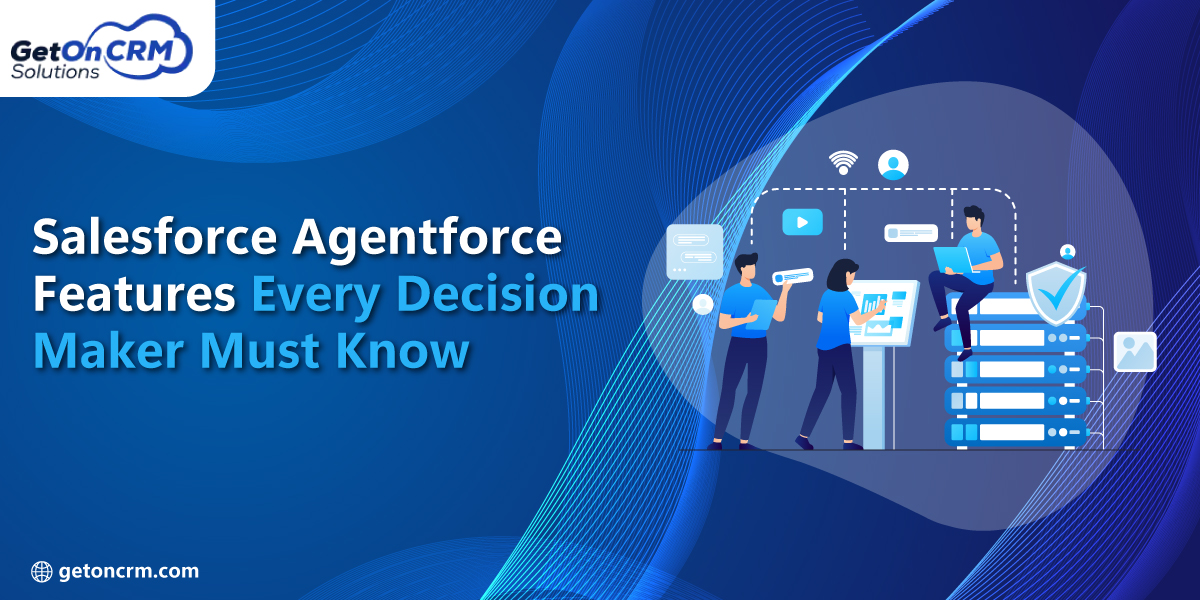In the Manufacturing industry, Artificial Intelligence (AI) is transforming the sector by enabling the technologies of Smart Manufacturing and Industry 4.0. Emerging technologies such as AI are incorporated into business functions like Predictive Analytics in Manufacturing and AI-driven supply Chain Optimization. As such, AI is now an operational resource, not an imagined concept suspended in the future.
AI is being deployed across industries to enhance productivity and efficiency, curb operational downtime, and improve responsiveness to market shifts. The Manufacturing sector is reaping the benefits AI offers with Solutions like Process Automation and Demand Forecasting.
The shift includes the integration of Salesforce AI Technologies. Salesforce Einstein GPT and salesforce agentforce services for Manufacturing are examples of tools that allow deep customer insight and automate workflows and service processes using AI-powered CRM for manufacturers.
Salesforce Manufacturing Cloud aids businesses in effective production-sales alignment, steering a greater Digital Transformation in Manufacturing.
The Current Landscape of AI in Manufacturing
The workforce dynamics have been upgraded from a long-drawn practice of just machines and workforce to now machines, people, and intelligence.
AI in manufacturing is redefining factory processes through Industry 4.0 technologies, nurturing smart manufacturing ecosystems where everything from processes and products to forecasts is data-driven.
From self-optimizing assembly lines to systems that can detect defects earlier than any human, the AI-powered manufacturing solutions powered by machine learning are reshaping the factory floor. AI has become essential in areas like quality control, manufacturing process automation, and predictive maintenance, reducing waste and enhancing uptime.
Revolutionary changes of this magnitude stem from Salesforce AI Integration. Solutions such as Salesforce Einstein GPT, Salesforce Manufacturing Cloud, and Agentforce for Manufacturing are more than digital improvements; they provide insight into digital transformation in manufacturing.
Businesses equipped with AI-powered CRM for manufacturers, as well as Salesforce AI Agents, gain instant insights with self-governing customer outreaches and streamlined supply chains.
AI can be focused on AI in industrial operations, AI-driven demand forecasting, or broader digital transformation in manufacturing.
The use of smart systems alongside platforms like Salesforce CRM for manufacturers sets an unprecedented standard. The shift into intelligent smart manufacturing has occurred; we’re simply waiting to see how fast it learns.
Top 21 Future Trends of AI in Manufacturing
As AI technologies evolve, so does their incorporation in different industries. In particular, AI in manufacturing software helps execute the different steps, like designing, planning the product, and even building it with the precision needed.
Due to all of these developments and innovations, the production processes have been completely revolutionized.
As we move further into the future, the technologies will keep on advancing, but for now, here is the list of the 21 coming manufacturing hinting trends with the power of AI for years to come:
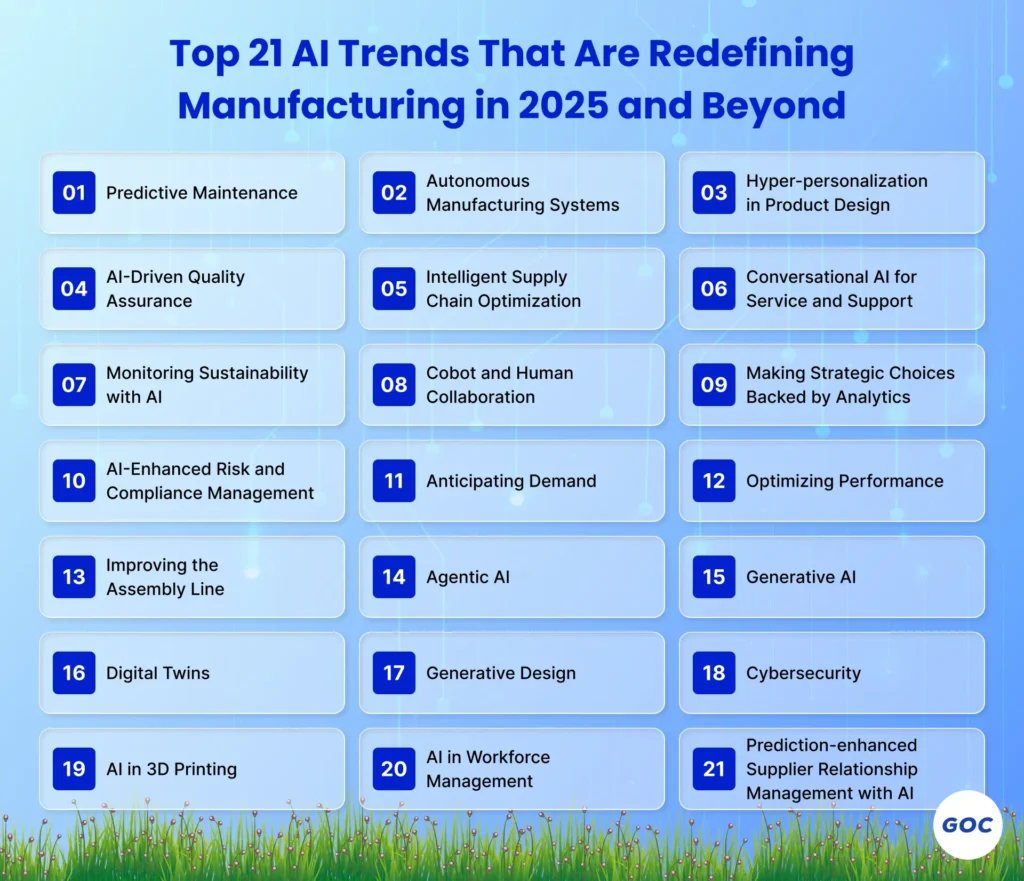
1. Update of Predictive Maintenance.
With every new technology development, the older known ones need to be improved as well; in this case, taking the examples of the traditional maintenance used like schedules, the predictive analytics in Manufacturing, supported by Salesforce Manufacturing Cloud, is set to move forward to a new phase known as “Predictive Maintenance 2.0.”
This trend uses AI-powered solutions to refine the estimation and lessen the failures of necessary machinery by utilizing real-time sensor data and previous machine-learning techniques.
Example: GE Aerospace utilizes AI to monitor over 44,000 in-service engines, detecting potential issues before failures occur, thereby reducing downtime and maintenance costs.
2. Autonomous Manufacturing Systems
The usage of fully autonomous factories is becoming more viable and is becoming a reality. The AI-driven autonomous systems are capable of performing tasks such as machine alignment and making production decisions in real-time and do not require human interaction.
The use of Manufacturing Process Automation can eliminate human error, adapt to ever-changing needs, and optimize production efficiency. These autonomous systems also need to be connected to business operations for seamless execution, which is done using Salesforce AI Integration.
Example: Amazon operates robotics manufacturing facilities that produce autonomous mobile robots such as Proteus, which independently navigate the warehouse floors and improve efficiency in fulfillment centers.
3. Hyper-personalization in Product Design
With a rise in demand from consumers for custom products, hyper-personalization is being enabled at scale through AI in Industrial Operations.
With the use of AI-Driven Demand Forecasting along with the gaged behavior of customers, manufacturers will be able to design custom products at a higher efficiency rate.
The use of Salesforce CRM for Manufacturers with this AI-driven model creates a responsive and agile product development cycle that best suits customer needs.
Example: Brands boost engagement and sales using AI by personalizing email campaigns tailored to demographics to specific customer groups, driving sales while improving sales conversion rates.
4. AI-Driven Quality Assurance
AI algorithms are addressing defect recognition overlooked by a human inspector, thus transforming quality control. The combination of Computer Vision and Manufacturing Data Analytics enhances accuracy and consistency along the production line.
This approach to AI-Powered Quality Assurance enables waste reduction while supporting ongoing developments.
Example: Siemens implements computer vision technology that utilizes AI on assembly lines to improve accuracy in identifying errors, thereby surpassing human inspection standards and achieving stricter quality norms.
5. Intelligent Supply Chain Optimization
Using AI-Driven Supply Chain Optimization, manufacturers may now be able to react to supply outages, disruptions, or changes in demand with greater ease than prior.
Tools like Salesforce Einstein GPT analyze enormous amounts of logistics data to predict logistical needs, control stock levels, and even suggest the most appropriate delivery routes. All of this guarantees timely shipment and reduced operational costs.
Example: AI is used by companies to study a huge quantity of logistics information so that demand forecasting and inventory control accuracy improves considerably.
6. Conversational AI for Service and Support
Salesforce AI Agents, including Agentforce for Manufacturing, are advancing AI Chatbots in Manufacturing. These bots are capable of answering service calls in real time, responding to technical questions, and providing internal team support.
The use of Conversational AI significantly enhances the customer’s experience while reducing delays in the resolution of operational problems.
Example: Sephora’s virtual assistant utilizes conversational AI to provide product recommendations and answer customer queries, enhancing the shopping experience.
7. Monitoring Sustainability with Artificial Intelligence
Environmental concerns are now at the forefront of the manufacturing industry. Using AI tools helps to track energy usage, emissions, and waste within set boundaries to ensure compliance and sustainability.
Implementing AI-Powered CRM for Manufacturers enables closer alignment of ESG objectives with business processes, thereby allowing greater corporate transparency and responsibility.
Example: During a two-week pilot, Nestlé, with the help of Zest AI’s realtime food waste monitoring tools, was able to reduce food waste by 87% significantly.
8. Cobot and Human Collaboration: Artificial Intelligence Collaboration
Cobot or collaborative robots are designed to aid humans in performing various tasks. These systems improve productivity while ensuring worker safety as guided by AI in Manufacturing.
The new era of Smart Manufacturing is where human decision-making and innovation, supported by automation, becomes possible once repetitive and dangerous work is done by cobots.
Example: Collaborative robots or cobots are being used more often in manufacturies and are able to assist people with assembly and inspection tasks, thereby increasing productivity.
9. Making Strategic Choices Backed by Analytics
The Manufacturing industry has increasingly adopted real-time analytics. Executives can act swiftly and make informed decisions thanks to AI systems offering insights.
Strategic Salesforce ai in manufacturing use cases integration provides real-time analytics, reporting, and forecasting in sync with shop floor data, which aids in strategic planning.
Example: Predictive maintenance is automated through equipment performance monitoring using real-time data analytics, helping to avoid unexpected downtimes.
10. AI-Enhanced Risk & Compliance Management
Operating risks and compliance need to be managed from multiple dimensions now more than ever. Regulatory and internal metric audits can cross-examine data for anomalies, fraud, or safety violations, and AI systems will flag them.
Coupled with Salesforce Agentforce Features, this aids manufacturers in remaining audit-ready and agile to shifting compliance demands.
Example: International technology corporations leverage AI algorithms to forecast changes in data privacy regulations, allowing amendment of data handling policy to retain compliance across multiple regions.
11. Anticipating Demand
Forecasting customer demand with artificial intelligence is becoming more advanced and sophisticated. By analyzing previous sales records, market trends, and relevant activities, AI systems are capable of forecasting customer needs much more accurately.
Such models assist in optimizing inventory and production schedules, thus minimizing waste.
Example: Siemens modified its salesforce-manufacturing Cloud to incorporate AI powered demand prediction tools which helps proactively adjust production lines and inventory. With this change, Siemens managed to reduce overstock costs by twenty percent.
12. Optimizing Performance
Enhancements in Automation in Manufacturing have enabled the real-time tracking and improvement in performance of machines, workflows, and other parameters related to them.
The use of AI on sensor data gives Bosch the ability to monitor and improve the operational efficiency of the equipment, reduce energy expenditures, and increase overall yield.
Example: Bosch employs AI-driven analytics combined with Salesforce Einstein GPT to optimize equipment performance across factories, achieving significant energy savings and increased output.
13. Improving the Assembly Line
Mistakes made by people during the complex tasks on assembly lines can be minimized with the use of AI-powered manufacturing Solutions through the automation of such tasks. This ensures they are completed with precision.
AI-powered robotics and real-time analytics work together to expedite the production process, resulting in improved product quality and quicker turnaround times.
Example: Tesla’s advanced manufacturing plants use AI and robotics to optimize their assembly lines, boosting production speed while maintaining strict quality standards.
14. Agentic AI
Agentic AI refers to systems with the capacity to function as self-governing agents within industrial frameworks capable of making decisions and performing tasks within the processes.
Powered by Salesforce Agentforce Features, these AI agents now improve cross-unit communication and decision-making with greater agility in all aspects of the manufacturing workflow.
Example: An instructor automotive manufacturer leverages Agentforce for Manufacturing embedded AI Salesforce Agents to autonomously resolve supply chain interruptions to reduce downtime.
15. Generative AI
Generative AI augments an engineer’s creative potential to design and create new parts and designs, as well as devise intricate solutions, by analyzing large amounts of data and simulating countless possibilities. It helps to speed innovation and also tailor the processes to the exact demands of the customer.
Example: GE Aviation utilizes Generative AI to design more fuel-efficient and cheaper to manufacture lightweight engine components.
16. Digital Twins
Digital processes, systems, or assets can now be monitored and simulated in real-time with the help of their counterparts through digital twins.
When used in conjunction with Data Analytics of Manufacturing, it allows for the predictive optimization of failure mitigation and maintenance, as well as the virtual testing of strategy renewals.
Example: Rolls-Royce gains predictive intelligence for maintenance and enhances reliability while lowering service costs by simulating operational conditions of their jet engines with digital twins.
17. Generative Design
Tools that harness the power of AI in Generative Design explore numerous design variations automatically based on performance criteria, materials, and costs.
This development promotes creativity and innovation by providing optimized designs, which are often unexpected.
Example: Autodesk, an AI generative design software, automates the design process and assists manufacturers in creating parts that are not only lightweight but also durable, improving product performance while reducing material costs.
18. Cybersecurity
As more devices become connected with the use of Industry 4.0 Technologies, AI in cybersecurity becomes indispensable for protecting the manufacturing infrastructure.
AI can easily and instantly detect abnormal behaviors, consider sensitive data a possible threat, and respond to cyber-violence instantly.
Example: Honeywell applies AI solutions for enhanced cybersecurity to protect smart manufacturing networks from cyberattacks, which ensures safe and uninterrupted operations.
19. AI in 3D Printing
3D printing processes can be accelerated by AI through optimization of the print parameters, raw materials, and quality control evaluations.
AI can improve predictive models in spotting possible issues to avert wastage of time, resources, and improve accuracy.
Example: With AI-adaptive corrections to 3D printing, HP’s 3D printers optimally adjust to varying material challenges, leading to better, faster, and more precise production of outlines and components.
20. AI in Workforce Management
AI-Powered CRM for Manufacturers allows intelligent scheduling based on skills, monitoring of productivity, and tracking of various other functions.
These tailored AI solutions assist manufacturers in better allocation of human resources to meet demands in shifting workload and ensuring safety at work.
Example: A global producer of electronics integrates Salesforce AI into their systems for managing employee schedules, thus decreasing overtime expenses and enhancing workforce morale.
21. Prediction-enhanced Supplier Relationship Management with AI
AI-Driven Supply Chain Optimization encompasses predictive analytics for supplier relationship management as well.
AI monitors supplier benchmarks, identifies possible risks, and recommends alternate sourcing methods to guarantee uninterrupted supply.
Example: Procter & Gamble uses seller risk management with AI-enhanced predictive analytics in Salesforce Manufacturing Cloud to proactively manage supplier risks and avert supply chain disruptions.
These trends illustrate the compelling value of AI-driven technologies and Salesforce AI applications in transforming manufacturing processes, accelerating the digital evolution of manufacturing, and facilitating smart manufacturing ecosystems.
Role of Salesforce AI in Driving These Trends
With intelligent automation and connected operations, Salesforce is at the forefront of advancing digital transformation in manufacturing.
The Salesforce ecosystem facilitates decisions based on predictive analytics in manufacturing, improving customer experiences while enhancing workflow and interaction efficiencies.
Salesforce Einstein GPT makes it easier to predict manufacturing performance and evaluate future demand using AI-powered manufacturing solutions and advanced analytics.
Real-time production insights and manufacturing data analytics, combined with manufacturing process automation, enhance efficiency and responsiveness.
Integration of sales, service, and field operations contained in Salesforce Manufacturing Cloud allows for AI-powered manufacturing solutions, resulting in more powered operations.
Agentforce for Manufacturing employs AI chatbots in manufacturing from Salesforce, as well as Salesforce AI Agents.
Salesforce AI Agents enhance the automation of the service provided in the manufacturing sector. These technologies assist in the manufacturing process automation, increasing productivity and making digital transformation in manufacturing achievable.
Challenges to Watch Out For: Integrating AI in Manufacturing
Integrating AI in the manufacturing process brings a great deal of innovation. However, some challenges remain. These challenges risk slowing progress and impacting outcomes.
a. Data Silos – In the absence of a unified system such as Salesforce Manufacturing Cloud, fragmented data sets severely restrict the efficacy of Manufacturing Data Analytics and AI-Driven Demand Forecasting.
b. Overcoming Integration Complexities – Other tools, such as Agentforce for Manufacturing, require the use of advanced technology that has been carefully engineered, planned, and designed
c. Insufficient Skilled Workforce – Integrating Manufacturing Automation with AI and AI-powered CRM for Manufacturers requires specialized knowledge of AI in Industrial Operations.
d. Costs of Implementation – Many AI-Powered Manufacturing Solutions demand significant investment in Industry 4.0 Technologies.
e. Risks to Security – Smart Manufacturing and Salesforce AI Integration are vulnerable to new security threats as the boundaries of digital ecosystems expand.
Wrap up
The future of AI in Manufacturing lies in predictive analytics, autonomous operations, and AI-powered CRM for manufacturers. To stay ahead, organizations must adopt AI-powered manufacturing solutions and embrace Salesforce AI integration.
GetOnCRM helps manufacturers leverage Salesforce Manufacturing Cloud, Agentforce for Manufacturing, and Salesforce Einstein GPT for smarter workflows and AI-driven supply chain optimization.
FAQs
1. What is the main benefit of using AI in manufacturing?
AI improves production efficiency through automation, predictive maintenance, and real-time data insights. It reduces downtime and enhances decision-making across the manufacturing cycle.
2. How does Salesforce Einstein GPT help manufacturers?
Salesforce Einstein GPT provides predictive analytics and automated responses to streamline operations. It helps manufacturers forecast demand and optimize customer engagement.
3. What is Agentforce for Manufacturing used for?
Agentforce is a Salesforce AI agent that automates service tasks and internal support. It enhances response time and improves operational workflow efficiency.
4. Can AI support sustainability in manufacturing?
Yes, AI tracks energy use, emissions, and waste to support environmental goals. It ensures compliance while reducing resource waste.
5. What are digital twins and how are they used in manufacturing?
Digital twins simulate real-world assets and processes for predictive analysis. They help manufacturers test strategies and reduce failure risks.


